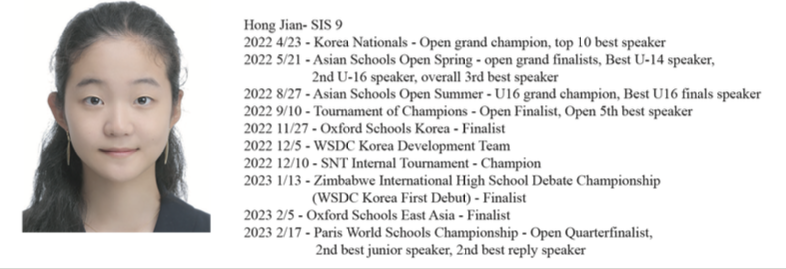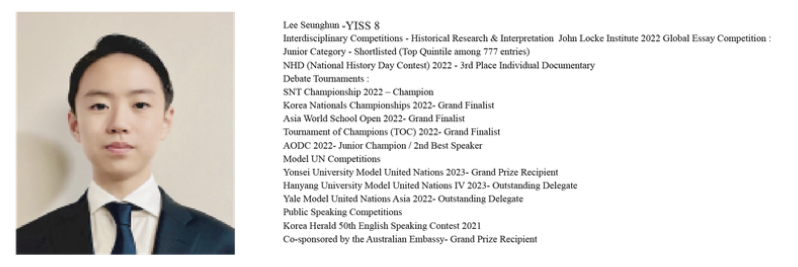Carbon Is Out of Fashion-Hong Jian
Conserving water, using public transport, and turning off electricity. These are solutions that probably everyone knows. But what about things you don’t realize? Such as how fast fashion produces twice the amount of CO2 than planes and shipping combined? Or how only 5% of donated clothes from Korea are actually donated? Or that out of 100 top brands in the world, none of them have a transparency level above 78%? Between 2000 to 2015, clothing sales have doubled, yet use went down by 36%. It has come to a point where one-third of young women in the UK think clothes are “old” after they’ve worn it once or twice. So it’s no surprise that fast fashion ranks for 10% of the Earth’s total CO2 – and by 2050, the fashion industry could be responsible for 26% of it. Fashion generates significant amounts of waste too. Textile dyeing makes up 20% of global wastewater- and wastewater treatment plants make up 3% of all carbon pollution, so the more wastewater fashion creates, the more carbon that needs to be used to clean it up. What happens to clothes that are thrown away? They become more carbon. 92 billion kilograms of clothes are thrown away each year. Much is unintentional: in the US, only 20~40% of donated clothing will be resold or down-cycled into rags. The remaining 60 to 80% end up in the landfills of developing countries. In Ghana, these piles of clothes are called “dead white man’s clothes.” When the fabrics decompose, they release methane and carbon dioxide, both greenhouse gases. To fix this, we must hold fashion companies accountable. The 2022 Fashion Transparency Index shows that out of the 250 top brands in the world, 89% of those brands had a transparency score under 50%. Fast fashion brands generally have a lower score, but ironically, so do the largest luxury brands. Chanel ranks 15%, Hermes 31%, and Louis Vuitton 29%. The fact that the companies that earn the most money stay the most complacent is deeply concerning. It’s our role as consumers to demand transparency in how they plan to stay sustainable. How do we solve this problem? For one, buy less. Wear what you have, and if you do buy, buy second hand, buy from eco-friendly companies, or buy clothes made of organic fabrics. Do your research to find most eco-friendly brands. And when you’ve outgrown clothes, donate directly, repurpose, or trade! Throwing away should be the last resort. Companies and the market will follow suit, so do what you can to help the environment. The planet needs it.
The Voice of Activism- Seunghun Lee
For centuries, history has witnessed the achievements of incredible activists in society. But these influential activists rely on a unique language to deliver their solutions. It is the style of language that determines whether an individual is a successful activist. Powerful activists use a special form of analysis. In fighting for a particular goal, activists must first identify the issue and be specific. For example, Greta Thunberg, an environmental activist, emphasizes the growing issue of climate change. Thunberg increases the impact of her words by mentioning the many changes that will affect the planet. But beyond identifying the problem, activists provide deeper insight: they rely on data that highlight the urgency and complexity involved. Instead of referring to climate change as irreversible, Thunberg said, “The popular idea of cutting our emissions in half in 10 years only gives us a 50% chance of staying below 1.5 degrees.” Such analysis is crucial for activists to deliver their message with conviction. But for any action to take place, activists need public support. As a result, activists use a distinct vocabulary to attract and convince people during speeches: since well-crafted phrases stand out from others, they grab the attention of listeners. For instance, Martin Luther King Jr. repeated “I have a dream” in his speech during the March on Washington, which went on to be an icon for racial equality. This also highlights the need for a memorable statement. By using a single sentence to summarize their cause, activists appeal to more. Long reports are important, but punchy statements create a force for change. Activists develop this style through shared origins, through which they learn about an issue. For example, Frederick Douglass was a prominent abolitionist. Much of his power came from being a slave, allowing him to sympathize with others. Armed with such experiences, Douglass became a passionate leader. Meanwhile, by understanding how society views social change, activists know the importance of motivation. Most people often view reform as a radical and inaccessible goal, and activists must appreciate this. Since Thunberg knew people were hesitant to make environmental change, she focused on gathering attention with the School Strike for Climate. The ability to experience and grasp social viewpoints is crucial to a successful activist.Not every activist fights for a worthy cause. Regardless, all activists identify their issues with insight and detail. By understanding the mindset of the public, they can accumulate awareness. The best activists are not people who try to stand out for more views and likes on social media. As they share their discoveries and insight, we must hope that society is willing to listen.
Park Seoyoung (Arix Park)
Debating improved my ability to think and speak logically. It further helps to organize mixed logics clearly. One might say that expressing your ideas to others are the principle, however one cannot persuade another if the logic is unreasonable.
Park Seohee (Rachael Park)
Debating improved my ability to think and speak logically. It further helps to organize mixed logics clearly. One might say that expressing your ideas to others are the principle, however one cannot persuade another if the logic is unreasonable.
Park Haein (Lauren Park)
Through debate, I learned to be more confident, as well as improving my public speaking skills that I will continue to use. Overall, debate is a great experience, and I enjoyed meeting new people through it and working as teams.
Cho Sooin (Charlene Sooin Cho)
When I first heard the word debate I wasn’t desperate to do so. But now that I am in this stage, I would like to acheieve the goal to be, not only a debater but a persuasive person that can interact and face the world. I hope that you can have the same thought as you do debate.

